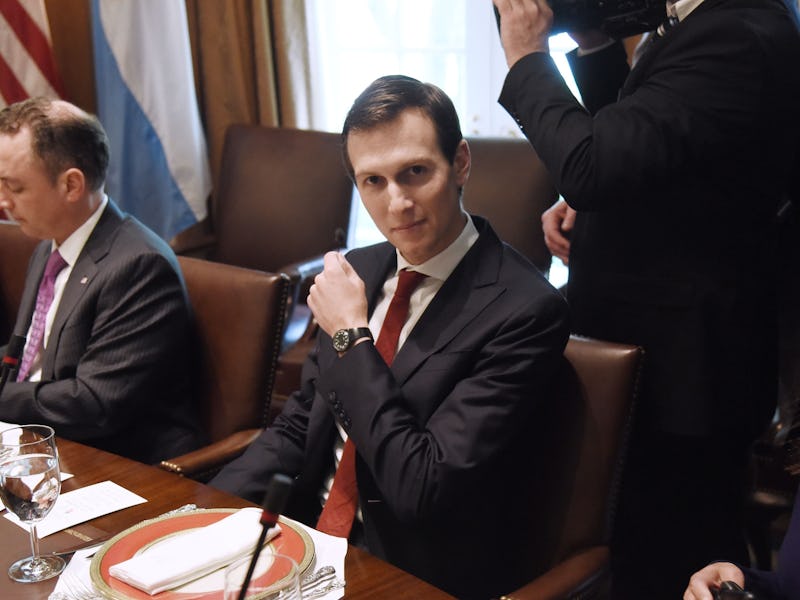What is Cadre and Why Didn’t Jared Kushner Disclose His Investment?
The senior White House adviser likely wanted to keep quiet his ties to big banks and George Soros.

Jared Kushner, husband to Ivanka Trump, son-in-law to President Donald Trump, and senior White House adviser has reportedly failed to disclose his part ownership of the real estate startup Cadre to government ethics officials.
So what exactly is Cadre, and why does this matter?
Cadre is a real estate startup co-founded by Jared Kushner, his brother Joshua, and their former employee Ryan Williams. It creates a market for high-end, pricey real estate investments offered by pre-approved sellers an accessible only to “qualified purchasers.” The process is billed as being quicker, easier, and more streamlined than older, more conventional real estate channels, hence the exclusivity of the service. The company has roughly a 1 percent acceptance rate for properties trying to get in on the action. After all, the word cadre refers to a small group of specialists within a given field or practice.
But what the company actually does is somewhat less important than who else is involved with it — and understanding of which is helped along by this handy chart from the The Wall Street Journal:
Cadre is backed by entities such as the eccentric Silicon Valley billionaire Peter Thiel, Goldman Sachs, and George Soros, who has backed the startup to the tune of $250 million.
Did that last name sound familiar? It should, and it also likely sheds light on a big reason why Kushner conveniently left out Cadre on his disclosure form.
George Soros is a Hungarian-American business mogul with his hands in many different ventures. He is also a prominent and vocal backer of Democratic and liberal political candidates, a position that has marked him as the target of a multitude of right-wing conspiracy theories — some of which have been peddled by President Trump himself. Soros is the one that Trump supporters and other right-wingers have in the past — and today — accused of paying leftist agitators to show up at events like the Women’s March and congressional town halls hosted by congresspeople in their home districts. It was also falsely claimed during the election that Soros owned voting booths across the country and would be rigging them against then-candidate Donald Trump.
Kushner might be a little self-conscious about this Soros association since he’s become something of a liberal boogeyman for those on the right. Some of Trump’s diehard supporters likely won’t be happy at this revelation, especially when the president sold himself and his family partly on their independence from such (perceived) shady associations. And it’s not a loose connection, either. A $250 million investment is far from chump change.
The same goes for Goldman Sachs’s involvement in Cadre — although less so since Trump himself is already close with multiple former Goldman employees, including Steve Bannon and Treasury Secretary Steve Mnuchin.
There’s also the simpler issue of Kushner recusing himself from certain decisions — namely those that will affect his own assets. It’s standard practice and required of government officials to do so. It’s more run-of-the-mill corruption than high intrigue, but Kushner may simply have wanted to be able to push for decisions that would help Cadre without an ethics enforcer looking over his shoulder while he did so.
A lawyer for Kushner did point out that Kushner had disclosed his involvement with BFPS Ventures, LLC, his company through which he is a part owner of Cadre, but that defense rang hollow in the wake of the recent revelations.